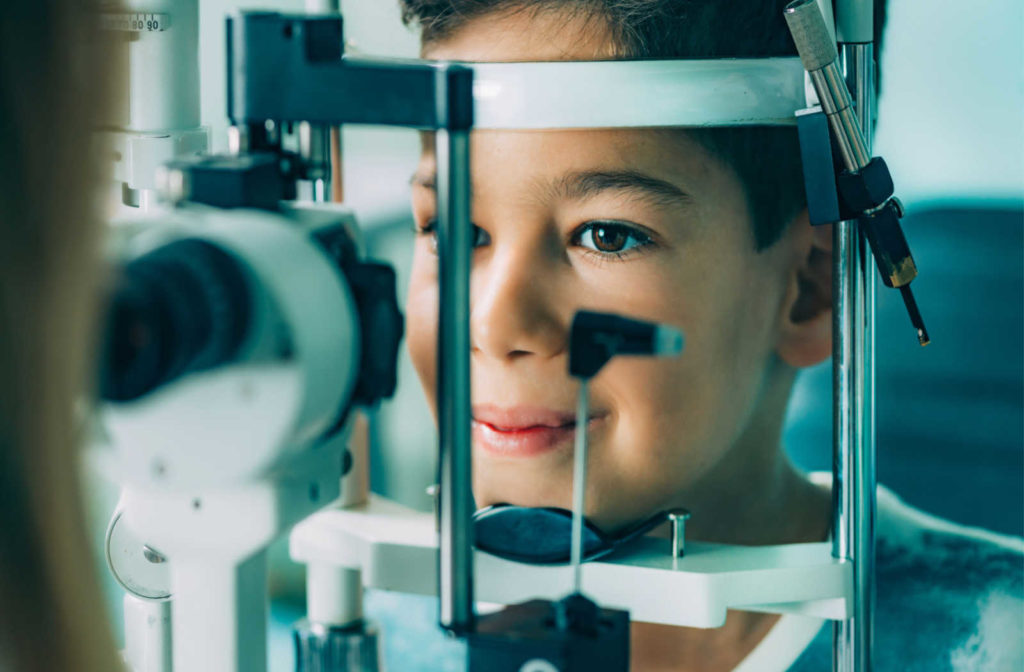We often go through our daily lives without realizing how much we rely on our eyes. Without proper eye care, much of what we do every day would be impossible.
Do you remember when you last had an eye exam or visited the optometrist? Some people only see an eye doctor if they notice any vision changes, whereas others go much more frequently.
So, how often should one get an eye examination? It depends on a few things: Age, your eye health, and your risk of eye disease.
About Eye Exams
Generally, eye exams take 30 minutes to 1 hour. Routine or comprehensive eye examinations look at the overall health of your eyes, eye conditions, and unrelated issues that cause symptoms affecting the structure of the eye, such as diabetes.
With advanced diagnostic technology, your eye doctor can check each part of the eye, including the eyelids, cornea, lens, iris, retina, and optic nerves. In more detail, an eye exam assesses:
- Eyesight
- Peripheral vision
- Eye muscle movement
- Refractive errors
- Color vision
- Pupil response to light
- Eyes’ ability to work together and move in all directions
The recommendations by the American Academy of Ophthalmology are as follows:
Children
- A first eye exam at 1 year
- At least once between 3 and 5 years
- Once before starting school
- Every 18-24 months from 6 to 17 years
The presence of risk factors determines the frequency schedule for children. These may include:
- Premature birth and low birth weight
- Family history of refractive errors, amblyopia, strabismus, congenital cataracts, and metabolic or genetic disease
- Infection in mother during pregnancy
- Smoking, alcohol, or drug use during pregnancy
- Cortical visual impairment
- Academic performance problems or developmental delays
- Contact lens wear
- Eye surgery or previous eye injury
- Diabetes or high blood pressure
Adults
- We recommend annual eye exams for adults aged 18–64
We may recommend more frequent eye exams if you are at risk for sight-threatening conditions. The risk factors for adults include:
- Family history of ocular disease
- Contact lens wear
- Certain racial and ethnic groups
- Progressive refractive error
- Eye surgery or injury
- Medications with side effects on the eyes
- Hazardous occupations
Seniors
- Annually for 65 and over
Risk factors for seniors include health and age-related conditions and vision issues such as:
- Family history of cataracts, glaucoma, and macular degeneration
- Diabetes, heart disease
- History of eye surgeries or trauma

Benefits of Eye Exams
Regular doctor visits ensure overall health, as do regular eye exams for overall eye health. There are significant advantages and benefits of having routine eye exams with or without signs and symptoms.
Avoid Learning Difficulties in Children
Over 6% of children below 18 have an eye and vision condition in the United States. And close to 3% of children below 18 years are blind or visually impaired.
Learning in children of all ages occurs through visual absorption, and vision problems in early childhood can turn into permanent problems if not detected early. Eye exams can monitor vision changes, and treatment with vision correction, either from glasses, contact lenses, or surgery, can help you maintain eye health.
Early Detection of Eye Diseases
Not all serious eye diseases present with warning signs. Glaucoma is the leading cause of blindness worldwide, and around 3 million Americans have glaucoma.
Changes may be gradual or all of a sudden. Conditions such as cataracts, glaucoma, and macular degeneration can lead to partial or permanent vision loss. Because glaucoma and cataracts are progressive conditions, early detection with routine eye exams allows treatment before permanent damage.
Signs of Health Conditions
Examination of the eye and the blood vessels can pick up more than just eye conditions. They also reveal other health conditions, such as diabetes, high blood pressure, high cholesterol, and cancers.
People with diabetes are also at an increased risk of developing cataracts, glaucoma, and diabetic retinopathy. Diabetic retinopathy is due to damaged blood vessels in the retina, and with progression comes vision loss.
During a diabetic eye exam, your optometrist can dilate the pupil to get a closer look at the back of the eye. If picked up early, treatment for diabetic retinopathy can prevent vision loss.
Preserve Your Vision
Eye exams are crucial for better vision and detecting eye problems early to prevent vision loss. If you have specific needs, 20/20 Vision Center can provide personalized exam schedules. Call us today to book your next eye exam.



